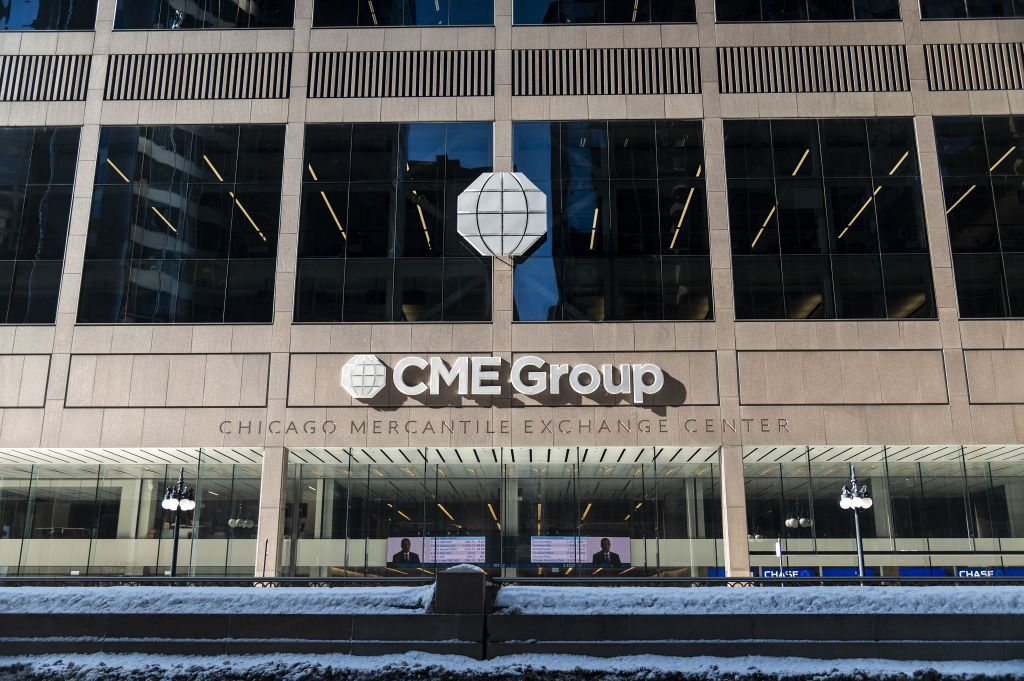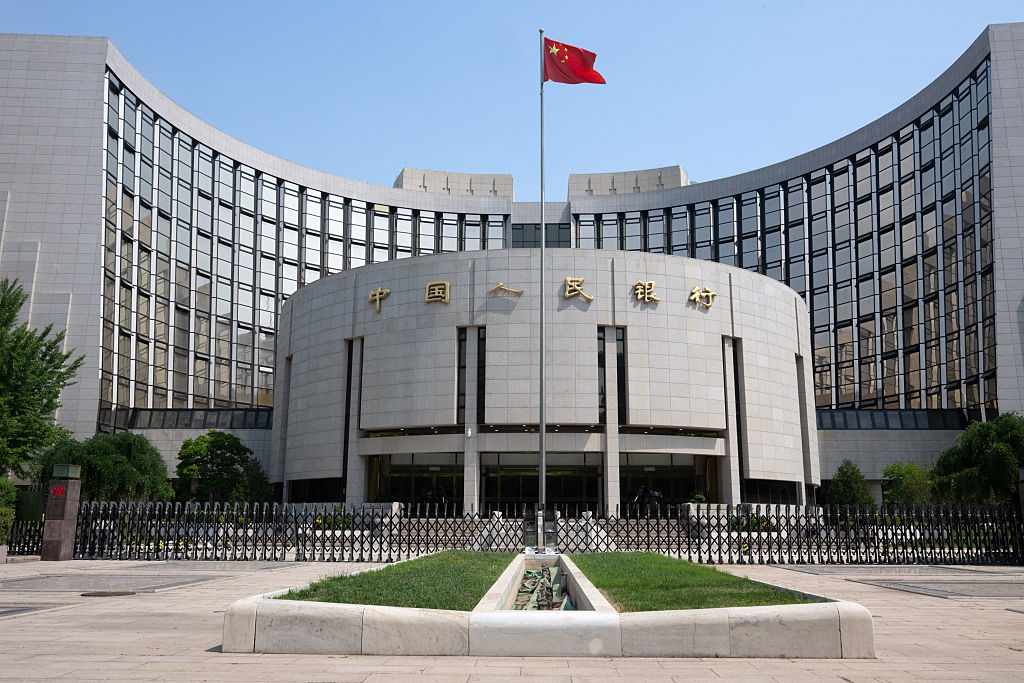Why and how to short Coinbase shares
Coinbase, the only listed cryptocurrency exchange, will struggle to stay ahead of circling rivals. Matthew Partridge explains how to play it.


Get the latest financial news, insights and expert analysis from our award-winning MoneyWeek team, to help you understand what really matters when it comes to your finances.
You are now subscribed
Your newsletter sign-up was successful
Want to add more newsletters?

Twice daily
MoneyWeek
Get the latest financial news, insights and expert analysis from our award-winning MoneyWeek team, to help you understand what really matters when it comes to your finances.

Four times a week
Look After My Bills
Sign up to our free money-saving newsletter, filled with the latest news and expert advice to help you find the best tips and deals for managing your bills. Start saving today!
One of the biggest trends in finance over the past few years has been the rise of cryptocurrencies, such as bitcoin and ethereum. When they first arrived on the scene they were seen largely as the playthings of those interested in computers and of other rather less savoury characters who wanted to prevent their activities from being traced by the authorities (even though digital currencies are not fully anonymous). However, the rapid surge in price brought them to the attention of most investors, with the result that at several points last year the price of a single bitcoin was trading at around $60,000.
This euphoria wasn’t just limited to digital currencies themselves. Coinbase (Nasdaq: COIN), the only listed bitcoin exchange, was valued at $86bn when it listed on the Nasdaq stock exchange in the US last year. Since then, its price has swung up and down by almost as much as the cryptocurrencies that are traded on it. The share price fell by a third shortly after it was listed, only to rally above its listing price, before plunging in value again. At the moment it is down by more than half from the peak it hit in November. Still, all the evidence suggests that the worst may not yet be behind it, and that it still has further to fall.
Even those most sceptical about cryptocurrencies have to accept that there are some compelling reasons why their use is likely to keep growing in the long run, even though some of the surge in activity that came from people bored with lockdowns is already starting to disappear.
MoneyWeek
Subscribe to MoneyWeek today and get your first six magazine issues absolutely FREE

Sign up to Money Morning
Don't miss the latest investment and personal finances news, market analysis, plus money-saving tips with our free twice-daily newsletter
Don't miss the latest investment and personal finances news, market analysis, plus money-saving tips with our free twice-daily newsletter
A tougher competitive landscape
However, as many other exchanges have found out, growth doesn’t necessarily turn into profits, especially if it ends up attracting competitors, eager to steal market share by pushing down margins. Already there are a number of bitcoin exchanges snapping at Coinbase’s heels. While many of these are dubious fly-by-night operations, several existing online brokers (such as Robinhood) and established payments firms (PayPal, for example) are trying to muscle into the area.
As a result, it’s likely that Coinbase will be forced to slash the amount of money that it makes from every trade. Even the company admits that a combination of competitive pressure and the end of the boom spurred by lockdown-related trading means that revenues are likely to fall this year. While it expects them to recover, the medium-term growth rate will be around 20% a year.
That’s a decent growth rate by anyone’s standards, but it’s not enough to justify the fact that Coinbase is trading on a multiple of 70 times its 2023 earnings. That makes its current price hard to justify, particularly if you are less optimistic about the company’s prospects – short-seller Jim Chanos has even suggested that the competitive pressure might be enough to drive Coinbase to a loss this year.
Coinbase’s share price is below its 50-day and 200-day moving averages, suggesting that the path of least resistance remains lower. I’d suggest that you go short at the current price of $177 at £10 per $1, and cover your position if it rises to $275. This gives you potential downside of £980.
Trading techniques: watch the board
In recent years there has been a drive to increase the numbers and powers of independent directors (sometimes referred to a non-executive directors) on corporate boards. The argument for such directors is that because they don’t directly work for the firm, or hold lots of shares, they can ask tough questions without being worried that their careers will suffer or the value of their investments fall. They can also in theory bring a wider range of perspectives to bear on issues faced by the company.
Many people argue that the lack of “skin in the game”, their part-time nature and the fact that they are appointed by the company’s management limits the usefulness of such directors. Still, there is evidence that it is worth paying attention to their actions – especially when they unexpectedly leave the board.
A 2017 study by Rüdiger Fahlenbrach of EPFL, Angie Low of Nanyang Business School and René Stulz of Fisher College of Business focused specifically on unexpected departures by independent directors (as defined by a relatively short time served) from S&P 500 companies between 1999 and 2010. They found that firms that had experienced such a departure went on to suffer “worse stock performance, worse accounting performance, a greater likelihood of an extreme negative return, a greater likelihood of a restatement and a greater likelihood of being sued by their shareholders” than the rest of the market. However, when resignations were expected (for instance, when the director was elderly and set to retire, or had been with the company for a long time) there were no statistically significant effects on returns, either negative or positive.
How my tips have fared
This has been a very good week for my open long tips, with all four rising. Construction firm Morgan Sindall rose from 2,145p to 2,431p, supermarket chain J Sainsbury increased from to 248p to 259p and African telecoms firm Airtel Africa advanced from 130p to 152p. Transport firm National Express also went up from 196p to 230p. Online retailer ASOS still remains below the 1,800p price at which I suggested that you should start going long. Overall, my four open long tips are making a net profit of £3,423.
As you might expect, it’s been a bit more mixed for my short tips, with three going down and two rising. Cinema chain AMC rose from $15.21 to $15.86, while marketing software group HubSpot rose from $428 to $459. By contrast, remote medicine stock Teladoc fell from $66.37 to $65.55; Chinese real-estate broker KE Holdings slid from $13.76 to $12.15; and DWAC, the company behind Donald Trump’s social-media “empire” slipped from $83.34 to $68.91. Taken together, there has been little change, with the net profits on all my tips rising by a total of £1 to from £3,587 to £3,588.
Overall, the combined profits on my tips are now £7,011, far more than the £1,805 in losses from the closed positions. I now have four long tips (Morgan Sindall, Airtel Africa, J Sainsbury and National Express) as well as six shorts (Teladoc, HubSpot, AMC, KE Holdings, DWAC and Coinbase). I also have a pending long tip (ASOS). While I wouldn’t close any of these tips, I’d raise the stop-loss on Morgan Sindall to 2,000p (from 1,925p); on J Sainsbury to 175p (from 150p); on Airtel Africa to 110p (from 105p); and I’d lock in some profits by cutting the price at which you cover the Teladoc short to $135 (from $160).
Get the latest financial news, insights and expert analysis from our award-winning MoneyWeek team, to help you understand what really matters when it comes to your finances.

-
 Should you buy an active ETF?
Should you buy an active ETF?ETFs are often mischaracterised as passive products, but they can be a convenient way to add active management to your portfolio
-
 Power up your pension before 5 April – easy ways to save before the tax year end
Power up your pension before 5 April – easy ways to save before the tax year endWith the end of the tax year looming, pension savers currently have a window to review and maximise what’s going into their retirement funds – we look at how
-
 Should you sell your Affirm stock?
Should you sell your Affirm stock?Affirm, a buy-now-pay-later lender, is vulnerable to a downturn. Investors are losing their enthusiasm, says Matthew Partridge
-
 Profit from pest control with Rentokil Initial
Profit from pest control with Rentokil InitialRentokil Initial is set for global expansion and offers strong sales growth
-
 In the money: how my trading tips fared in 2025
In the money: how my trading tips fared in 2025The success of the open positions offset losses on closed ones, says Matthew Partridge
-
 Coreweave is on borrowed time
Coreweave is on borrowed timeAI infrastructure firm Coreweave is heading for trouble and is absurdly pricey, says Matthew Partridge
-
 Circle sets a new gold standard for cryptocurrencies
Circle sets a new gold standard for cryptocurrenciesCryptocurrencies have existed in a kind of financial Wild West. No longer – they are entering the mainstream, and US-listed Circle is ideally placed to benefit
-
 Profit from other investors’ trades with CME Group
Profit from other investors’ trades with CME GroupCME Group is one of the world’s largest exchanges, which gives it a significant competitive advantage
-
 Investors need to get ready for an age of uncertainty and upheaval
Investors need to get ready for an age of uncertainty and upheavalTectonic geopolitical and economic shifts are underway. Investors need to consider a range of tools when positioning portfolios to accommodate these changes
-
 How much gold does China have – and how to cash in
How much gold does China have – and how to cash inChina's gold reserves are vastly understated, says Dominic Frisby. So hold gold, overbought or not